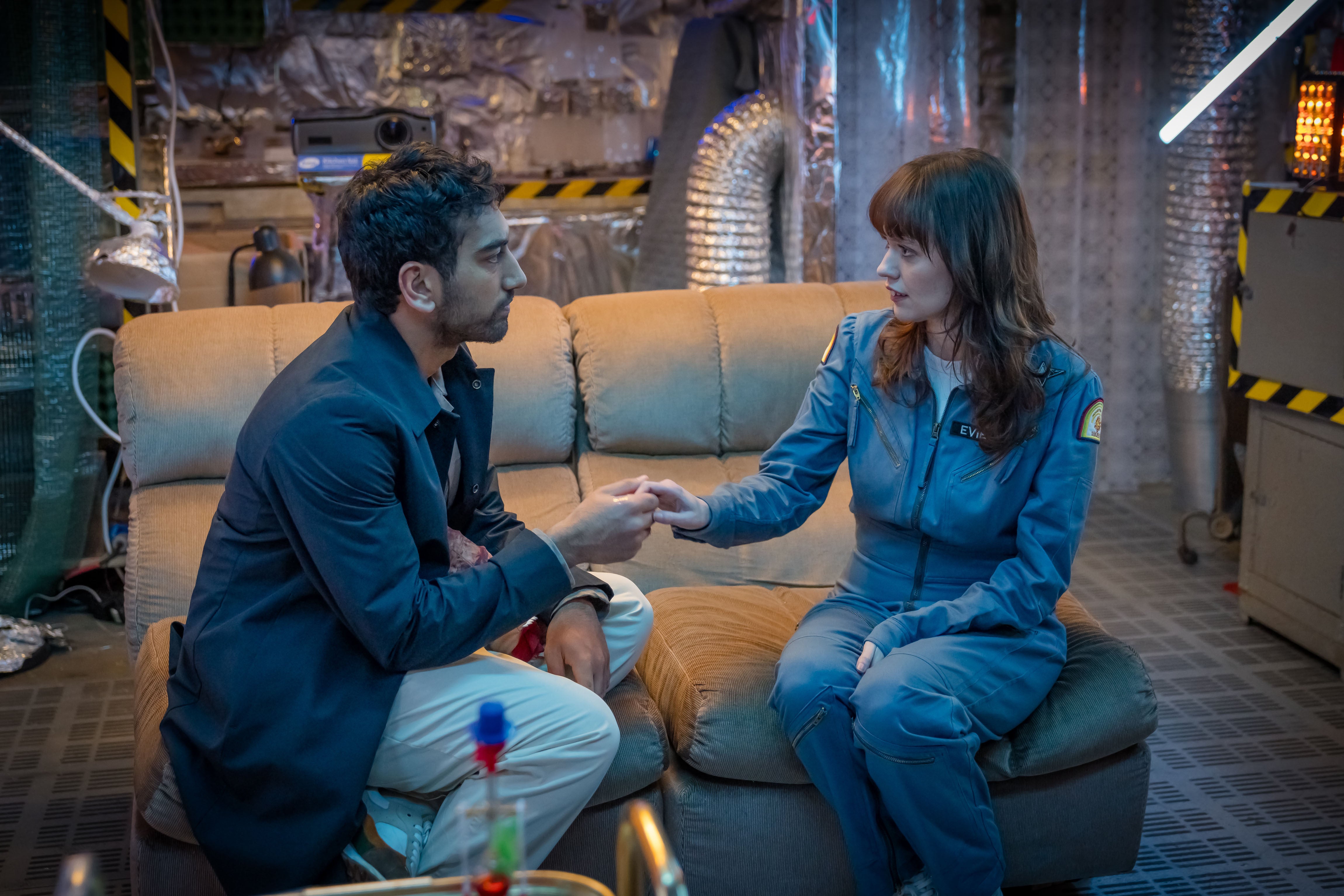Back in the 1990s, Ferran Adrià, head chef at the three-Michelin-starred El Bulli, pioneered a new type of cooking, which he referred to as “deconstructed cuisine”. In this revolution, a salad or sandwich was no longer a salad or sandwich; its ingredients were deconstructed and rebuilt in novel and interesting ways. The technique proved a sensation, and, like all great fads, swiftly spread across the globe. Soon, a deconstructed cheesecake was as common as a regularly constructed one. Now, in the 2020s, the same thing has happened with the deconstructed romcom. Where once the breakdown of genre tropes and techniques felt exciting, it now feels passé, as in BBC Three’s new six-part sitcom, Film Club.
Aimee Lou Wood is Evie, a young woman suffering from debilitating agoraphobia following a breakdown six months ago. Now she’s back home with her mum, Suz (Suranne Jones), and little sister Izzie (Liv Hill), unable to get beyond their suburban driveway. “She’s 28 years old and can’t get past the bleedin’ bins!” laments her caring, but frustrated, single mother. Evie’s one respite from this torment is her weekly film club, where a group of friends join her in the garage for an immersive screening. Alien, The Wizard of Oz, Shawshank Redemption, Bridesmaids: with each week, Evie’s life seems to mirror the film on show. Prime among her concerns is whether she’s more in love with her sweet, ever-present boyfriend Josh (Adam Long) or her best friend, sensitive cinephile Noa (Nabhaan Rizwan).

For Evie, cinema is an escape from the tumult. It also gives Film Club its structure, with each episode revolving around a different film (indeed, the title cards pay beautiful homage to the history of cinema). The production design revels in Evie’s obsessive evocation of each film – smoke and spacesuits for Alien, yellow brick road for Wizard of Oz, hole in the wall for Shawshank – in a way that evokes Michel Gondry’s Be Kind Rewind or Garth Jennings’s Son of Rambow. There is a palpable affection for cinema present in how Wood and her co-writer (and Rada classmate) Ralph Davis build out Evie’s world. It has the feel of a good student short film about an agoraphobe exploring the world through the magic of the silver screen – but stretched to a full series, both the premise and characterisation are exposed.
Wood is a very charismatic actor, whose performance in the most recent chapter of The White Lotus has catapulted her to the top tier of British TV talent. Evie is gentle but guileless, occasionally selfish (“it’s all about you, isn’t it?” her sister rages, fairly) though largely thoughtful. It is a performance that just about works, but the rest of the ensemble struggles. Matriarch Suz is rather one-note, while the shifting dynamic with boyfriend Josh never feels truly earned. Owen Cooper – fresh off an Emmy win for Adolescence – makes his small screen return in an underused role as a local truant who calls Evie “Miss Havisham” (teenage yobs near me make fewer Dickens references). But the biggest issue is Noa. He’s intentionally buttoned up (a “man of mystery” in Suz’s words), but his appeal, too, feels rather withheld. All good romantic comedies live or die on the chemistry between their leads, and Film Club here sputters like an old reel of 35mm.
Part of the issue is that sitcoms like Starstruck and Too Much have, very recently, proved more effective at deconstructing cinematic tropes. Both of those utilised the language of cinema – its cliches and conveniences – and subverted them. Film Club attempts to do something of the same, but with a crucial difference. It’s not funny. In the absence of romance and a void of comedy, we’re left with a show about a housebound millennial, which is structurally a sitcom but with a plot that’s like Rear Window if Jimmy Stewart only had an iPhone 13 rather than a telephoto lens. So, it feels rather aimless.
Film Club is ultimately a star vehicle for Aimee Lou Wood, as both actor and writer. But her talents here feel deployed on a show which is instantly forgettable. Using the work of Noel Coward or Stephen King or Kristen Wiig as a scaffolding only draws an unflattering comparison; where they are landmarks that have endured, Film Club feels disposable. Nice and sweet might be good adjectives for a dating profile, but for television, and haute cuisine, we need something sharper.







